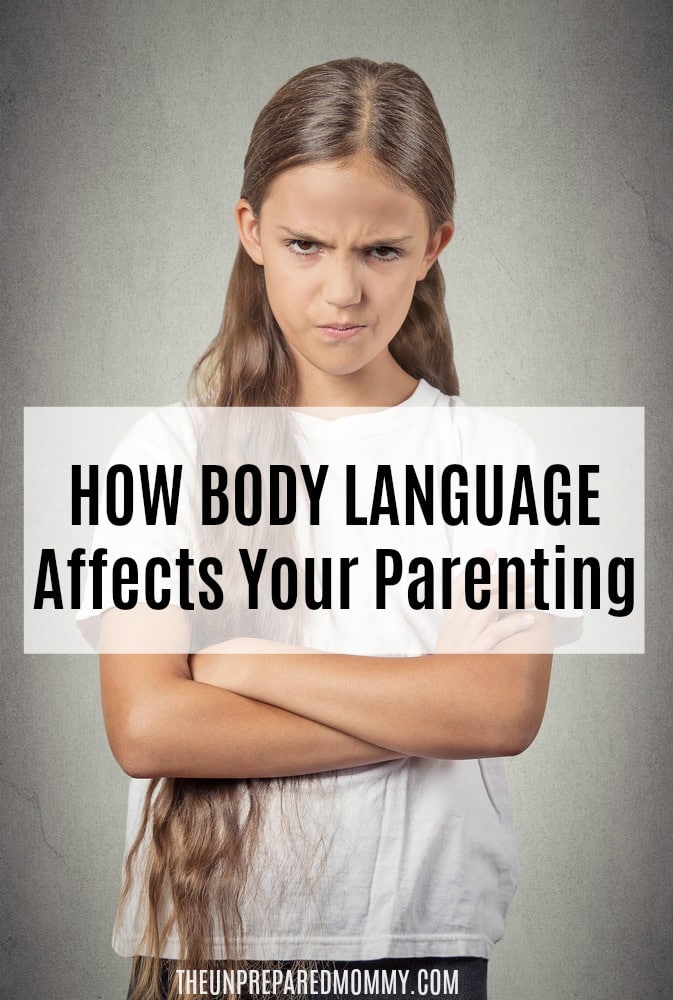Have you ever been in a situation where someone said everything was fine but you could tell by the look on his or face that it clearly wasn’t fine? Maybe it had something to do with another person or maybe it was directed at you.
Regardless of who the negative body language was directed at, what you remember about it is probably that you were uncomfortable. It might have stressed you out.
This is what happens to a child when the body language of a parent is not positive. If you’re trying to teach your child something or you’re interacting with him, he’s going to be paying attention to what your body language is saying. Were you aware that your body language affects your parenting?

How Your Body Language Affects Your Parenting
In one of the studies conducted, children could see a wrapped package and were instructed to wait for eight minutes. If they waited these eight minutes, then after that, they could have the gift.
While the children were doing the waiting, the parent had to fill out a lot of paperwork. Because these kids were younger children ranging from four to seven, the waiting was hard for them.
They wanted that gift. So, they behaved just like you would expect children to do. They pleaded for the gift and tried to get it. Some of the parental figures involved in this study reassured their children with positive words or touch.
But other parents didn’t respond positively. In fact, they either didn’t react at all to their children’s actions and words or they responded with negativity. Positive parenting includes remembering to use body language to help your child feel nurtured.
If you want him to do something because you want him to learn, but your body language is one of impatience and irritation, what this does is cause your child stress out – and it negates the learning experience.
Sometimes, when a child wants something, a parent will wave a hand impatiently and won’t even take the time to hear the child out. This teaches the child to believe that what he needs is not important and it doesn’t give him the reassurance that every child not only needs but deserves as well.
How you respond to your child with your body language affects how well your child can perform in life. What you might not realize is that your body language can change the makeup of your child’s brain chemistry.
When a child is in an environment where there’s positive parenting, his brain is being encouraged in the development of healthy chemicals. On the other hand, when a child is subject to negative parenting, his brain produces stress chemicals.
Whenever a child has an influx of stress chemicals, it can affect many areas of his life – particularly in the area of learning. Being subject to the stress chemicals that can be traced back to negative parenting, a child can also experience problems with moods such as anxiety or depression.
He may also begin to exhibit problems with the way that he behaves. Many times when a child begins to act out, it’s as a direct result of the way his brain is processing the parenting.
Whenever you spend time with your child, if you will make it a point to use the kind of body language that’s part of positive parenting, it can make a difference in how your child learns and behaves.
Your child will be able to better focus, he’ll be more apt to learn easier and it will help him interact better with others. Another perk for your child when you use positive parenting and positive body language is your child will develop a greater level of self-esteem than he would have if you didn’t parent this way.
Related posts:
Positive Parenting: The Best Approach to Raising Kids
What Is The Best Parenting Style and Why You Should Care

Leave a Reply